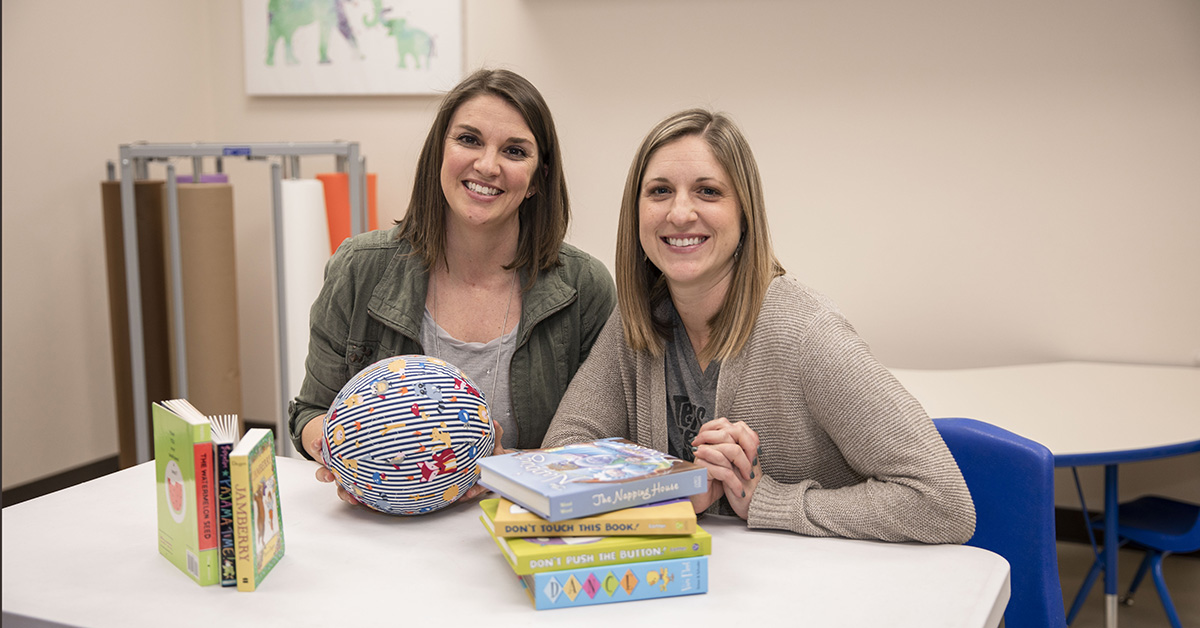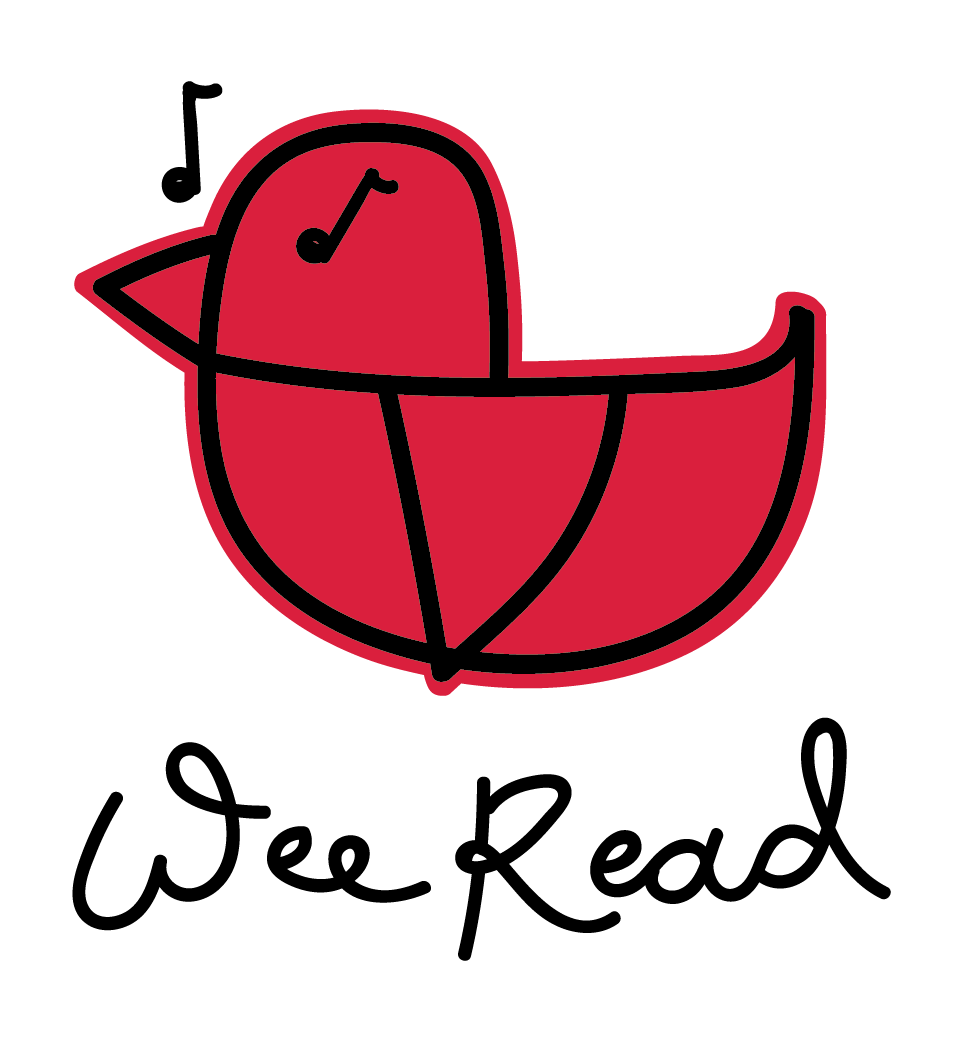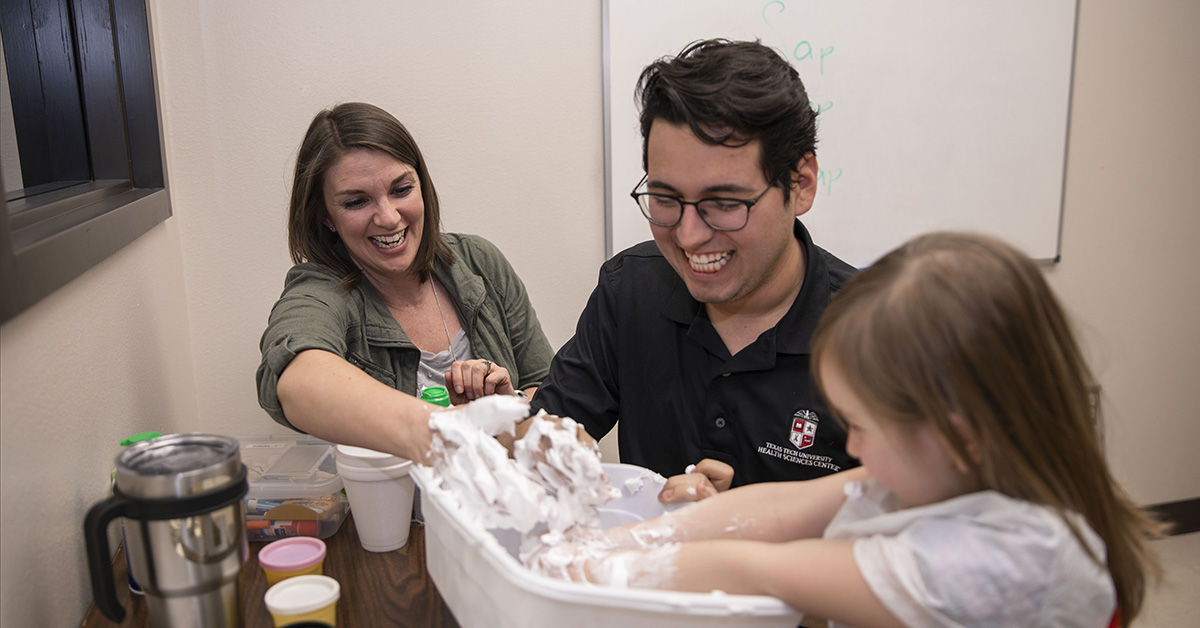SLHS Program Helps Children, Families Overcome Communication Barriers

Brittany Hall and Melissa Whitaker have a passion for increasing communication in children through the Speech Language and Hearing Sciences (SLHS) program at TTUHSC.
According to the National Institute on Deafness and Other Communication Disorders,
nearly one in 12 (7.7 percent) U.S. children ages 3-17 has had a disorder related
to voice, speech, language, or swallowing in the past 12 months. If undetected or
untreated, these disorders loss can delay a child’s speech and language development.
It’s an issue Brittany Hall and Melissa Whitaker from the Texas Tech University Health
Sciences Center (TTUHSC) School of Health Professions address every day. Hall is an
assistant professor and Whitaker is a clinical instructor for the school’s Department
of Speech, Language and Hearing Sciences (SLHS).
Hall says SLHS blends many health care related fields—biology, anatomy, physiology,
genetics, communication and psychology—with health and education policy. That mixture,
she believes, has allowed the department to support local health care with community
programs like Wee Read, a program coordinated by speech-language pathologists to help
families with 1- to 3-year-old children. The cost-free program is available to all
community members.

“The Wee Read program is designed to provide engaging, developmental learning opportunities
for the children and explicit instruction in language, literacy and behavior development
for the families,” Hall explains. “It provides preventative services and maintains
a link between the community and health care providers.”
Hall says Wee Read supports families and children through weekly interactive story
times held at TTUHSC’s SLHS clinic. These structured story times utilize age-appropriate
books, songs and activities like crafts and sensory experiences to support early literacy. She
says the weekly story times also provide a framework for creating specific strategies
that facilitate parent-child interaction, speech-language development and overall
communication.
“The strategy is explained and modeled at the beginning of each weekly session, and
then parents have the opportunity to engage with their child while using the strategy
in a variety of settings and different learning activities,” Hall explains. “Parent
coaching in this hands-on environment allows caregivers to practice strategies with
support and guidance in real time. The best part of Wee Read is having fun; parents
are provided with a great environment to enjoy their children while improving their
interaction and communication.”
The Wee Read program is a collaborative effort between the clinicians, students, families
and children. Hall says the best results for SLHS clients come from collaborative
efforts where a SLHS practitioner, like a speech-language pathologist, works together
with families and other health care professionals because it strengthens everyone’s
interactions with the child.
Whitaker agrees and says one of the primary reasons the Wee Read program was developed
is to provide a strategy that is developmentally appropriate for toddlers and provides
caregivers with specific strategies that boost language skills.
“Toddlers don’t have to sit still and just listen,” Whitaker says. “We sing, dance,
do art, read books, play and engage in a lot of ways that support communication skills
and enrich early literacy development.”
Whitaker, who was drawn to the SLHS field because it combines her interest in brain
science with her desire to work with and educate children, finds programs like Wee
Read to be personally fulfilling because she is able to impact relationships in a
meaningful way.

“Toddlers don’t have to sit still and just listen,” Whitaker says. “We sing, dance, do art, read books, play and engage in a lot of ways that support communication skills and enrich early literacy development.”
“Communication skills are integral in any relationship, whether that is a toddler
communicating with their parent, a student communicating with his teacher or people
just understanding each other,” Whitaker says. “I like to think that what we do has
ripple effects above and beyond what we will ever see. Most days, my job doesn’t feel
like work; it feels like building relationships with people—whether that is with SLHS
students, colleagues, clients or community members.”
Hall says she was motivated to enter SLHS field by many people, including her mother
and aunt who both worked in a school setting. By watching them, Hall learned it was
possible to provide a positive influence in a child’s life.
“I wanted to have a direct impact and influence people in a similar way,” Hall says. “With
Wee Read, it is so rewarding to support and empower parents and caregivers with strategies
to improve the speech and language outcomes for their children. Hands down, the aspect
that I enjoy most about Wee Read and teaching in the SLHS profession is the relationships. It’s
a great example of why I love my job.”
Related Stories
Celebrating Veterans: TTUHSC’s General Martin Clay’s Legacy of Service and Leadership
From his initial enlistment in the Army National Guard 36 years ago to his leadership in military and civilian health care management roles, Major General Martin Clay’s career has been shaped by adaptability, mission focus and service to others.
Texas Tech University Health Sciences Center School of Nursing Named Best Accelerated Bachelor of Science in Nursing Program in Texas
The TTUHSC School of Nursing Accelerated Bachelor of Science in Nursing (BSN) program has been ranked the No. 1 accelerated nursing program in Texas by RegisteredNursing.org.
TTUHSC Names New Regional Dean for the School of Nursing
Louise Rice, DNP, RN, has been named regional dean of the TTUHSC School of Nursing on the Amarillo campus.
Recent Stories
National Academy of Inventors Names TTUHSC Faculty Senior Members
The National Academy of Inventors (NAI) has designated two current and one former TTUHSC faculty researchers as Senior Members.
The John Wayne Cancer Foundation Surgical Oncology Fellowship Program at Texas Tech University Health Sciences Center Announced
TTUHSC is collaborating with the John Wayne Cancer Foundation and has established the Big Cure Endowment, which supports the university’s efforts to reduce cancer incidence and increase survivability of people in rural and underserved areas.
TTUHSC Receives $1 Million Gift from Amarillo National Bank to Expand and Enhance Pediatric Care in the Panhandle
TTUHSC School of Medicine leaders accepted a $1 million philanthropic gift from Amarillo National Bank on Tuesday (Feb. 10), marking a transformational investment in pediatric care for the Texas Panhandle.
